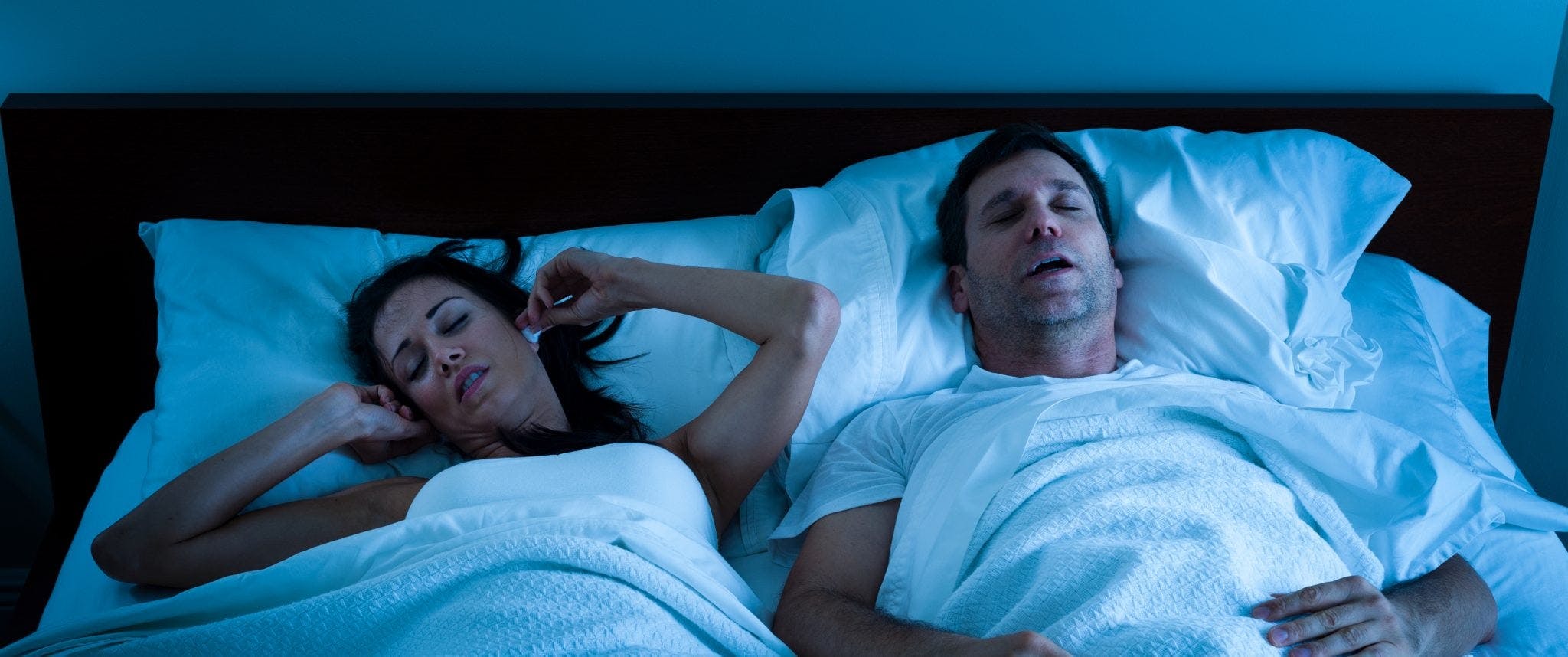Sleep apnea is a sleep disorder wherein breathing repeatedly stops and starts while sleeping. It can cause people to snore loudly, and they often feel tired even after a full night of sleep.
What are the types of sleep apnea, and how can it be combatted?
Types
There are three common types of sleep apnea:
- Obstructive sleep apnea: This more common form of sleep apnea occurs when throat muscles relax during sleep.
- Central sleep apnea: Central sleep apnea occurs when the brain doesn’t send proper signals to the muscles that control breathing.
- Complex sleep apnea syndrome: Also called treatment-emergent central sleep apnea, this condition occurs when someone has both obstructive and central sleep apnea.
Symptoms and Complications
Because symptoms of the types of sleep apnea overlap, determining which type of sleep apnea you have can be difficult. Here are some of the most common symptoms:
- Loud snoring (often more prominent in obstructive sleep apnea)
- Breathing cessation episodes during sleep, witnessed by another person
- Abrupt awakenings with a shortness of breath (often indicates central sleep apnea)
- Morning headaches, dry mouth or sore throat
- Insomnia (difficulty staying asleep)
- Hypersomnia (excessive daytime sleepiness)
- Difficulty paying attention
- Irritability
If snoring is loud enough to disturb others or yourself while sleeping, if you frequently wake up gasping for air, or if you’re constantly tired during the day, it could be time to see your doctor for a diagnosis about your specific condition.
Sleep apnea is a serious medical issue. It can come with complications including:
- Daytime fatigue
- High blood pressure or heart issues
- Type 2 diabetes
- Metabolic syndrome: a collection of other factors linked to higher risk of heart disease
- Complications: obstructive sleep apnea can become a concern with certain medications, general anesthesia or surgeries
- Liver problems
- Sleep-deprived partners and resulting relationship disruptions
Causes and Risk Factors
Obstructive Sleep Apnea:
Obstructive sleep apnea is caused by the throat muscles relaxing, narrowing or closing the airway as you breathe in. This can lower oxygen levels in blood. The brain recognizes the airway closing, and briefly awakens you so you can reopen the airway. This is often what causes snorting, choking or gasping. Risk factors for obstructive sleep apnea include:
- Excess weight: Obese people are at four times the risk of people at normal weight.
- Neck circumference: Men with a neck circumference of 17 inches or larger or women with a circumference of 15 inches or larger are at higher risk.
- Narrowed airway: Often inherited, or through enlarged tonsils or adenoids.
- Gender: Males are twice as likely to have sleep apnea, though women can increase risk by being overweight or going through menopause.
- Age: Sleep apnea occurs more often in older adults.
- Family history
- Alcohol, sedatives or tranquilizers: All relax the throat muscles.
- Smoking: Smokers are three times more likely to have sleep apnea than those who have never smoked.
- Nasal congestion
Central Sleep Apnea:
Central sleep apnea is caused by a failure of the brain to transmit signals to breathing muscles during sleep. Risk factors for central sleep apnea include:
- Age: Middle-aged and older people are a higher risk
- Heart disorders: Congestive heart failure raises risk of central sleep apnea
- Narcotic pain medications: Opioids can increase risk
- Stroke
Treatments
For milder cases of sleep apnea, your doctor might recommend basic lifestyle changes or home remedies like weight loss, quitting smoking or treatment for allergies.’
Obstructive Sleep Apnea:
There are a few therapies that might be useful in combatting obstructive sleep apnea.
- CPAP: Standing for continuous positive airway pressure, this is a machine that delivers air through a mask while you sleep. It’s the most common and reliable method of treating sleep apnea. Speak to your doctor about comfort and mask security.
- Other pressure devices: CPAP can be uncomfortable for some people, and there are similar alternatives available, including a device that automatically adjusts pressure while you sleep.
- EPAP: Expiratory positive airway pressure devices are small, single-use items placed over each nostril before sleep. They act as a valve allowing air in freely, but forcing air through small holes during exhalation. This helps keep the airway open.
- Oral appliances: Designed to keep the throat open.
There are also several surgeries that might be effective for obstructive sleep apnea, usually only an option after other forms of treatment have not worked.
Central Sleep Apnea:
Therapies for central sleep apnea include:
- Treating associated medical problems, such as heart or neuromuscular disorder
- Supplemental oxygen
- Adaptive servo-ventilation (ASV): A recently approved airflow device that learns your normal breathing pattern, stores the information in a computer, and then uses pressure to help regulate breathing
- CPAP masks
- Bilevel positive airway pressure (BiPAP): Similar to CPAP, but builds to higher pressure during inhalation and lower pressure during exhalation. The goal is to assist the weak breathing pattern found in central sleep apnea
If you are experiencing symptoms of sleep apnea, speak to your doctor about your treatment options.
Schedule an appointment with a Revere Health Internal Medicine provider today!
Sources:
“Sleep Apnea.” WebMD. http://www.webmd.com/sleep-disorders/sleep-apnea/sleep-apnea
“Sleep apnea.” The Mayo Clinic. http://www.mayoclinic.org/diseases-conditions/sleep-apnea/basics/definition/con-20020286






